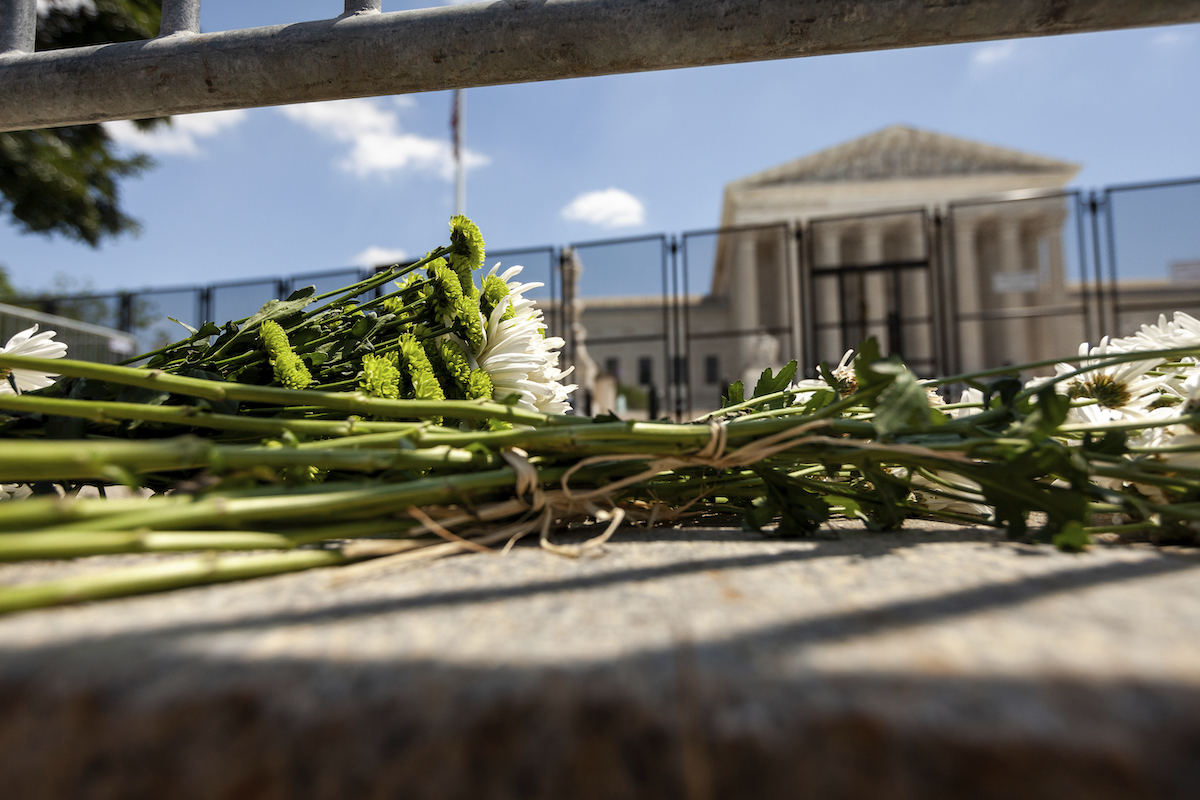Weeks after the Supreme Court’s landmark 6-3 ruling in Dobbs v. Jackson Women’s Health Organization (2022), which held that the Constitution of the United States does not confer a right to abortion, the nation is still struggling to come to grips with its consequences.
Numerous states have laws criminalizing abortion in certain cases that have not been in effect since the precedents set by Roe v. Wade (1973) and Planned Parenthood v. Casey (1992). One such state is Michigan. Local courts and attorneys generals are still working through the implications of the new ruling for those laws. Other states are working out the implications of “trigger laws” that have now gone into effect with the prior precedents now overturned. Many state legislators are considering entirely new laws with an aim either to restrict or to secure access to abortion.
All of this is occurring in the context of—and in many cases fueled by—an emotional frenzy unleashed in a deeply divided citizenry. Pro-life Americans are rejoicing while citizens committed to abortion rights are lamenting. Highly charged conversations in the public square as well as around dinner tables are proceeding with renewed urgency. These debates are centered on competing rights claims—the right to life of the unborn and the reproductive rights of women—and touch on the most important questions of the nature of the human person, freedom, and responsibility.
The deep irony is that these competing claims and important questions are not actually addressed by Dobbs.
Prior precedent had established a right to abortion by the principle of substantive due process. This principle allows courts to protect rights not specifically enumerated in the Constitution but alluded to in the 14th Amendment—rights to be preserved against any law that sought to deprive any person of “life, liberty, or property, without due process of law.”
In the majority opinion of Dobbs, however, Justice Samuel Alito argued that unenumerated rights must be “deeply rooted in this Nation’s history and tradition,” as the late former chief justice William Rehnquist asserted in a ruling on assisted suicide in Washington v. Glucksberg (1997). The long history of widespread regulation and prohibition of abortion prior to Roe is inconsistent with any claim to a deeply rooted history and tradition of abortion rights in America, and thus there can be no constitutional right to abortion.
Yet Justice Alito was very explicit about the narrowness of the question being settled by the Court, writing, “Our opinion is not based on any view about if and when prenatal life is entitled to any of the rights enjoyed after birth.”
Prior precedent in both Roe and Casey sought to adjudicate the questions of abortion per se, attempting to balance the competing rights claims, arguing that, in the words of the plurality opinion in Casey: “Before viability, the State’s interests are not strong enough to support a prohibition of abortion,” while acknowledging that “the State has legitimate interests from the outset of the pregnancy in protecting the health of the woman and the life of the fetus that may become a child.”
In their vigorous dissent to Dobbs, Justices Breyer, Kagan, and Sotomayor argued, “The right Roe and Casey recognized does not stand alone. … The Court has linked it for decades to other settled freedoms involving bodily integrity, familial relationships, and procreation. … Those rights led, more recently, to rights of same-sex intimacy and marriage.” Justice Alito notes in the majority opinion that “the most striking feature of the dissent is the absence of any serious discussion of the legitimacy of the States’ interest in protecting fetal life” and sees in the analogy drawn by the dissenting justices to other rights the court has recognized an implicit rejection of the project of the balancing of competing rights claims that prior precedence had sought.
Chief Justice John Roberts in his concurrence in judgment to Dobbs agreed that “the viability line established by Roe andCasey should be discarded,” but he disagreed with the majority’s ruling to overturn the entire precedent set in Roe and Casey. He proposed an alternative grounding for abortion rights centered on preserving a woman’s right to choose to terminate her pregnancy. Chief Justice Roberts argued that Mississippi’s law, which banned abortion after the first 15 weeks of pregnancy with exceptions for medical emergency and fetal abnormality, would not violate a right with such a foundation, as pregnancy is ordinarily discovered by six weeks of gestation. “That right should therefore extend far enough to ensure a reasonable opportunity to choose, but need not extend any further—certainly not all the way to viability.”
While the justices were clearly divided on the ruling, they appear unanimous in rejecting the balance previous precedent attempted to strike. It is now time for the republic’s citizens and representatives to perform their long-neglected duty.
Americans have just begun a renewed national dialogue unconstrained by the dubious precedents and tortured logic that have frustrated it for nearly 50 years. There will—at least initially—be more heat than light. Temperatures must cool for genuine insight to come. It will require both mutual respect and trust among citizens in a polarized age. The great promise of democracy is that citizens can live together, and participate in shaping their life together, in spite of apparent irreconcilable differences. Exploring and debating life’s deepest and most abiding questions—of the human person, freedom, and responsibility—is difficult but inescapable for any genuine life of community to persist. It is now incumbent upon the nation, not just the Supreme Court of the Unites States, to begin doing just that.
This article originally appeared in The Detroit News on July 14, 2022
